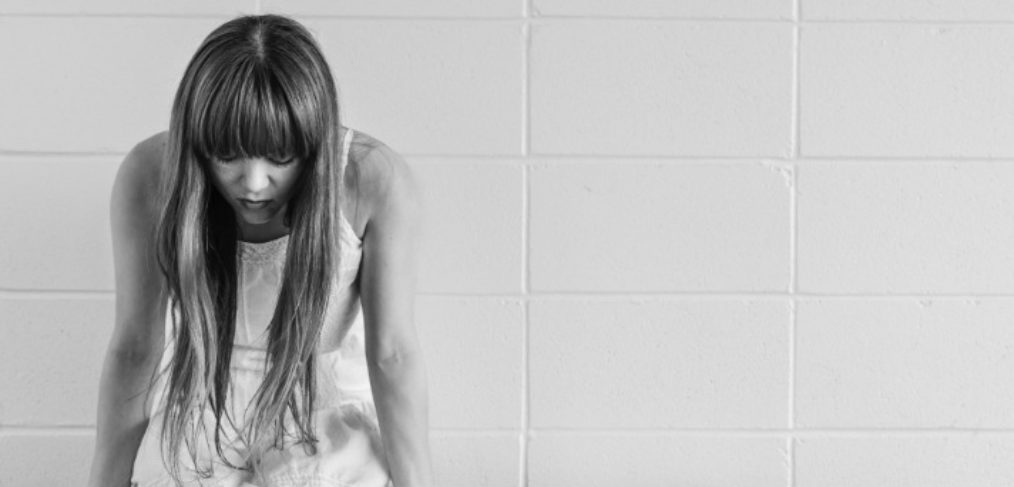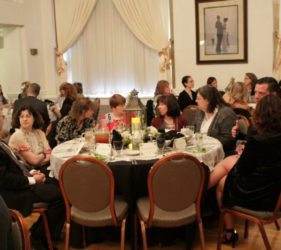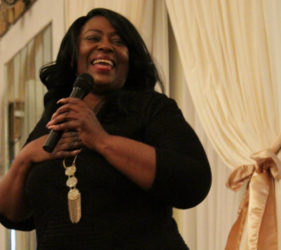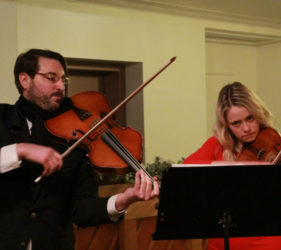Following is a powerful short video from survivor Elizabeth Smart about the power of forgiveness when overcoming trauma. Recently, one of her captors was released from jail. This is Elizabeth’s message about being at peace with her past and getting her power back.
Oasis of Hope is fighting sex-trafficking, one life at a time.
Oasis of Hope residents live in a beautiful and spacious safe-house nestled in the hills of Pennsylvania. For safety and security purposes, we cannot disclose the details of our CURRENT clients. However, we can share that we have received DOZENS of referrals from deeply wounded victims just in the past few months. They hail from all over the United States, and of course, right from our back yards in Pennsylvania.
WHAT WE KNOW ABOUT SEX-TRAFFICKING VICTIMS:
- They are scared. Often, these women have been running for their lives, or hiding in fear that they will be found again by their pimps.
- They are pessimistic. It’s hard for women who have been emotionally, physically and sexually abused by people they thought they could trust to believe there are people who really care.
- They are ashamed. Most sex-trafficking victims feel deep shame about what happened to them. They often blame themselves and are convinced they are deplorable and unforgivable people.
- They are disturbed. It is common for victims to suffer from an anxiety or mood disorder like PTSD, panic attacks, obsessive compulsive disorder, generalized anxiety disorder and major depressive disorder.
- They are distracted. More than 65% of victims struggle with sleeping and have recurring nightmares. They can be jumpy, easily startled, on guard and have difficulty concentrating.
- They are addicted. Drugs are almost always used by traffickers to manipulate and control sex-trafficking victims. Consequently, most also battle some form of drug addiction or dependence.
- They are confused. Often, these women have developed survival strategies during captivity that make it difficult to succeed in real life (ex. Stockholm syndrome and trauma & cognitive disorder.)
It is our mission to help these women successfully transition from BROKEN VICTIM to VICTORIOUS SURVIVOR.
When Oasis of Hope clients successfully graduate from our restorative program, they embrace a world they previously knew as hostile, unforgiving and abusive as victorious survivors. They have received the tools and strategies they need to begin their life afresh. Although they may continue to battle the memory of their horror-ridden experiences, they will do so with a newfound faith in God, with faithful supporters and with the knowledge that they CAN succeed in life!
Human Trafficking is a Hidden Crime.
According to the Department of Homeland Security, human trafficking is “a hidden crime as victims rarely come forward to seek help because of language barriers, fear of the traffickers, and/or fear of law enforcement. Traffickers use force, fraud, or coercion to lure their victims and force them into labor or commercial sexual exploitation. They look for people who are susceptible for a variety of reasons, including psychological or emotional vulnerability, economic hardship, lack of a social safety net, natural disasters, or political instability. The trauma caused by the traffickers can be so great that many may not identify themselves as victims or ask for help, even in highly public settings.”
In the past 60 days Oasis of Hope has received eight requests to receive new or recovering victims of sex-trafficking. In her recent talk at the Oasis of Hope Gala (see more below), Dr. Marlene Carson reminded us that there are more survivors needing a safe house than our nation can accommodate. The need is real.
Please pray with us for the women who are daily subjected to sex-trafficking in America!
Restore to Freedom Gala Update
Earlier this month Oasis if Hope sponsored its 4th annual Restore to Freedom Gala with special guest speaker, Dr. Marlene Carson. It was a great success! The Gala was attended by over 160 guests who were very obviously passionate about making a difference combating sex-trafficking in America. Our goal was to raise $20,000 for this important cause. With everyone’s generous support, we raised almost EXACTLY that amount!
This year we also hosted “The Experience” at the Gala which walked through the life and rescue of a victim turned survivor. It was such a great success that we are considering taking ‘The Experience’ to various venues and locations in the future.
We want to say “THANK YOU” again to all of the volunteers, sponsors, donors and attendees who helped make this event such an impacting success!
January is Human Trafficking Awareness Month
This month marks the national human trafficking awareness month. As we take all this time to nationally reflect on the devastating crime and its effects many of us might be asking ourselves, how can I make a difference? Our calendars are full of new year’s resolutions, events, classes, and work. Some of us may feel uninformed or helpless when it comes to taking a stand against human trafficking. If you’re anything like I was, you may be frustrated at feeling like you’re unable to do anything tangible. This, however, isn’t true! There are many things that we can do to begin to be the change we wish to see. It starts with us, our families, and our communities. There are things all of us can do to facilitate change and pose a threat to the cyclical nature of trafficking. Here are some things you might like to consider in the coming months:
1) Educate Yourself
Stay informed on the current news reports and statistics of human trafficking, especially within your own area. Review the warning signs and indicators of human trafficking and put the human trafficking hotline number into your contacts (1-888-373-7888). Read articles, books, and newsletters from the ministries you support.
2) Tell Others
This does not have to mean speaking at big events or having a house party. Telling others can mean sharing with your friends, family, and peers in informal settings. Sharing what is going on brings more collective awareness, which in turn produces more effective prevention.
3) Volunteer
Volunteering can sound intimidating! However, volunteering can be simple and fulfilling. Offer up your special skills, talents, or interests to your local shelters. Ask about serving opportunities, as small as they may be. Many ministries and shelters, like Oasis of Hope, depend on volunteers that graciously offer up their time and hearts to give survivors the best services possible.
4) Host
Host a speaker or fundraising event at your home, church, youth group, or community group.
5) Donate
Small donations can go a long way. Pray and consider what is an appropriate gift for you to give to a ministry fighting human trafficking. (You can donate to Oasis of Hope right here!)
6) Meet with local government representatives
Ask your local representative what they are doing to help your town fight human trafficking. Make calls, send letters, and show up in person.
7) Businesses
Are you a small business owner? Do you work in a high level position in a large corporation? The support of businesses, big and small, can make a world of difference to a ministry or organization that is fighting human trafficking. Show your official support through attending events, donating, offering jobs to survivors, and partnering with ministries like Oasis of Hope.
8) Students
If you’re a student, whether that is high school or college, you can do more than you think! Being an advocate in your campus community can help keep your fellow peers safe. Join or establish clubs that raise awareness about human trafficking, do school projects and papers concerning human trafficking, and request that human trafficking awareness education be communicated at your school. Ask for representatives of ministries to come speak at your class or campus.
9) Fight the taboo
Be a voice to your friends, family, coworkers, and strangers. Topics that focus on those hurting can be dismissed because it makes people uncomfortable. While sex trafficking should not be normalized, conversations about the topic should occur often and communicated clearly despite the taboo surrounding it.
10) Churches
The body of Christ has a calling and responsibility to the oppressed and least of these. Victims and survivors are made in the image of God and merit the dedicated support of the body of Christ. As a unit, a church can make a difference within their community by being an advocate, hosting events and training seminars, and training leaders to be aware of identifying at-risk individuals within the community. Prevention and education are two key areas where Churches can step up and make a difference.
If you want any more information or are looking for a ministry to partner with, don’t hesitate to contact us at our website www.oasisofhopeusa.org.
Tricia Ritter
Oasis of Hope Intern
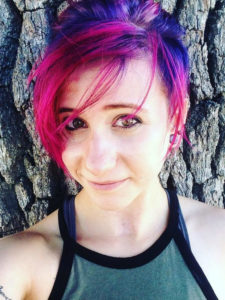 I have felt a calling to fighting injustice and alongside the oppressed since I was 13 years old. Since then God has developed and defined the calling on my heart, which has led me to pursuing ministry in fighting the human sex trade. While I was growing up I educated myself, volunteered, and was an advocate in my community for awareness. I graduated high school early and moved to Chicago to pursue my degree in Ministry to Victims of Sexual Exploitation when I was 17. As part of my degree I serve as an intern at a safe home for 6 months. Now I am a senior and graduating summer 2018. Giving a voice back to the people who have had it stolen from them is something I am more passionate about than anything else. God has called me deep into the ministry of rescuing and restoring individuals affected by the demand of human sex trafficking. It is the one thing that grabbed my heart and never let go.
I have felt a calling to fighting injustice and alongside the oppressed since I was 13 years old. Since then God has developed and defined the calling on my heart, which has led me to pursuing ministry in fighting the human sex trade. While I was growing up I educated myself, volunteered, and was an advocate in my community for awareness. I graduated high school early and moved to Chicago to pursue my degree in Ministry to Victims of Sexual Exploitation when I was 17. As part of my degree I serve as an intern at a safe home for 6 months. Now I am a senior and graduating summer 2018. Giving a voice back to the people who have had it stolen from them is something I am more passionate about than anything else. God has called me deep into the ministry of rescuing and restoring individuals affected by the demand of human sex trafficking. It is the one thing that grabbed my heart and never let go.

